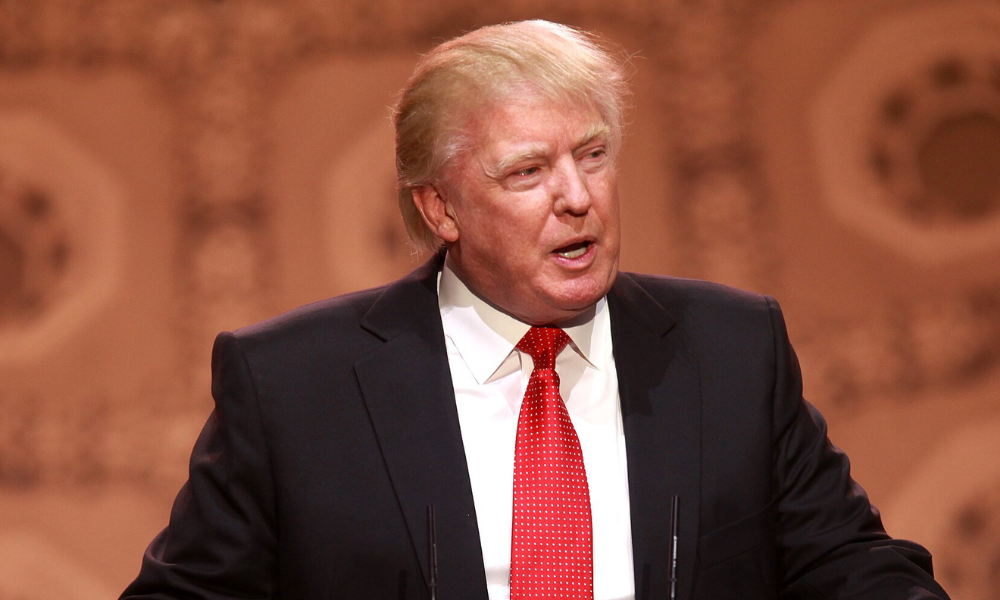Clark Lowry explains the damage done from Chinese and American tariffs on Western canola producers

While US President Donald Trump’s punishing tariffs have been an unrelenting source of headlines for Canadian trade, the impacts of Chinese reciprocal tariffs on Canadian canola products have quietly devastated farmers in the prairies.
The tariffs have been particularly damaging for the clients of Clark Lowry, a Calgary-based advisor who works primarily with farming clients, many of whom grow canola products. He says that both the uncertainty from Trump’s tariff policy and the impact on the commodity’s price from Chinese tariffs have forced clients to halt investment and seek a defensive strategy in their portfolios.
Working with farming clients is a unique experience compared to the average investor according to Lowry, who grew up on a Manitoba farm, and still returns to lend a hand during harvest season. He says that even without the threat of tariff turmoil, farmers need more security in their portfolios due to the uncontrollable nature of both weather and commodity pricing.
“There's two things – the commodity price and the weather – that you can't control,” said Lowry, senior wealth advisor at Wellington Altus. "Typically they tend to be a lot more risk averse, just because they deal with so much other uncertainty in their day-to-day life.”
Lowry says that during this pause on capital investment from farmers, he is shifting the cash flow initially set aside for expansion and investment into risk-free assets as a way of safeguarding his clients’ portfolios during this period of uncertainty.
While attention in Eastern agriculture circles has focused on Trump’s ire for the Canadian supply management system and potential tariffs targeting Ontario’s dairy industry, Western provinces have felt an immediate impact from Chinese tariffs targeting the canola industry.
On March 20, China announced 100 per cent tariffs on canola meal and oil in response to Canada’s 100 per cent tariffs on Chinese automobiles, a seismic blow to farmers in the prairies for whom China is their second-biggest customer after the US. Lowry explains that the Chinese tariffs were not only concerning for long-term prospects, but also had a direct impact on farmers’ ability to offload inventory from last year’s harvest.
“That had an immediate impact on the market. Canola dropped by about two and a half dollars a bushel right away,” he said. “That was an immediate issue for farmers, and the timing of that was quite poor for Canadian producers, because that's typically the time of year that they start to sell off any remaining inventory that they've got in preparation for 2025.”
If Trump’s continued tariff strategy pushes inflation up, Lowry is concerned that raised interests could hurt the cash flow situation of many of his clients – who often have sizeable levels of debt due to the nature of the profession.
“If these tariffs are going to go in into effect, it probably means inflation is going to come back up, which will mean interest rates will most likely be higher for longer,” he said. “Almost all farmers have got some debt, so that's going to impact their cash flows in a significant way.”
Though Lowry understands the national importance of protecting Canada’s already battered auto industry, he believes Mark Carney’s government should be looking to strike a deal with the Chinese government to alleviate some of the pain currently felt by Western farmers. He says that the five months between former Prime Minister Justin Trudeau’s resignation and Carney’s election created mass uncertainty surrounding the ability to negotiate these tariffs, and hopes that having established federal leadership could lead to a resolution.
“There's a huge impact on the Canadian economy – especially in the West – with these tariffs on Canadian canola producers … I know there's a lot of automobile manufacturing in this country as well, but if there's a way to get it to make it work for both, that would be ideal,” he said. “Carney has made lots of comments that he wants to reunite the country and repair relationships with the West. And I think making some headway in this would go a long way to doing that.”
If Chinese tariffs were a direct blow to Western farmers, Trump’s tariff policy have been more of a long-lasting flurry of uncertainty. Lowry suggests that many farmers have held off on investment, instead focusing on paying off debt while they wait to get clearer signals about the long-term impacts of tariffs. Canadian farmers also rely heavily on American-made equipment manufacturers and phosphate products from Florida.
“They're wanting to reduce their risk in their investments and be more liquid not knowing what the rest of this year is going to look like,” he said. “I would say a lot of them are not spending money on capital expenditures. A lot of the equipment that they get comes from the United States. So a lot of large capital purchase are being shelved and some that might have been looking for expansion and to expand their operation are probably putting that on hold at the moment too.”



